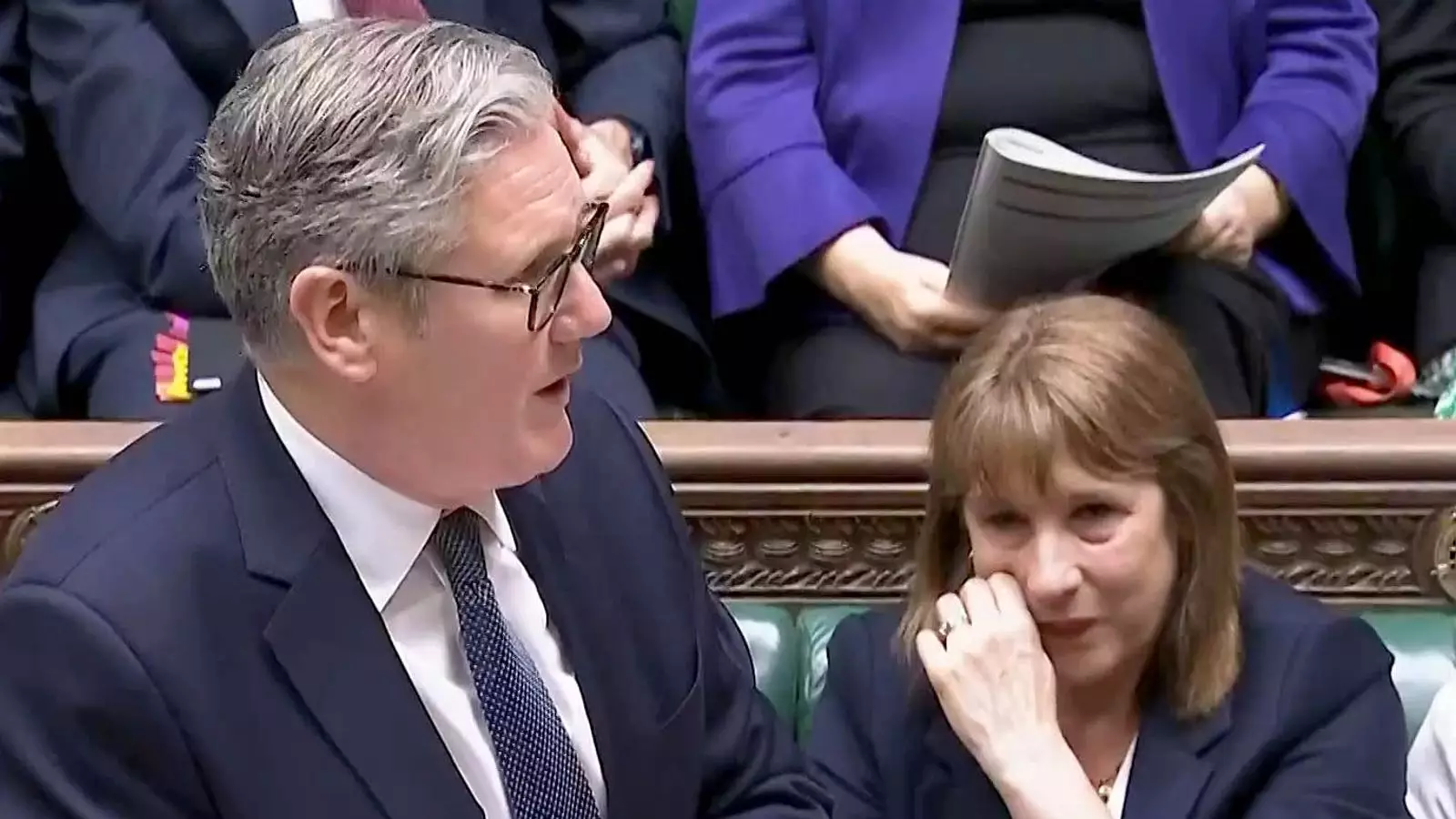In an era marked by rapid political upheaval and shifting voter allegiances, leadership stability often seems more mirage than reality. The recent speculation surrounding Prime Minister Keir Starmer’s tenure underscores how precariously perched leaders are, especially when public confidence wanes and internal dissent simmers beneath the surface. The alarm bells sounding within Labour’s ranks highlight a fundamental truth: political power is transient, and even the most seemingly solid leadership can disintegrate in the face of electoral setbacks or strategic missteps. This environment demands introspection, not complacency, from those at the helm. Leaders must recognize that rising dissatisfaction, both within their parties and among the electorate, can swiftly impose a death sentence on their careers if not addressed proactively.
The Growing Cracks in the Fortress
Recent reports from senior figures within the Labour Party reveal a disconcerting reality—simultaneous dissatisfaction and disillusionment are gnawing at the foundations of Starmer’s leadership. The warning that he might be ousted within months if electoral performance does not improve shines a stark light on the fragile nature of political survival. It also exposes an unsettling truth: leadership is increasingly judged not by policies or long-term vision, but by immediate electoral outcomes. Voters’ fickle loyalty, amplified by the rise of smaller parties and protest movements, creates an environment where established parties cannot afford complacency. Labour’s current struggles in Wales and London, compounded by new polling data indicating surges for Reform UK and the Greens, suggest a volatile landscape where traditional loyalties are dissolving faster than ever.
The Illusory Confidence of Top Leadership
Amidst this turmoil, Prime Minister Rishi Sunak’s government presents a curious case of apparent stability. His unwavering support for Rachel Reeves as Chancellor — even as her tearful appearance in Parliament signals internal stress — seems to bolster the narrative of cohesion. Yet, beneath this veneer lies uncertainty. Political figures who rely on personal loyalty and public reassurance must be cautious. The Prime Minister’s insistence that Reeves remains vital to his plans reflects an attempt to project strength, but it also raises questions about how much of this stability is genuine versus strategically constructed. Leadership, especially in difficult times, often hinges on perception as much as reality. The danger lies in ignoring systemic issues, such as looming economic challenges and internal party fractures, which can rapidly undermine even the most assured public stance.
The Personal and Political Vortex
The intersection of personal struggles and political duty creates a complex vortex that leaders must navigate with sensitivity. Reeves’s emotional moment in the Commons—claimed to be unrelated to politics—serves as a stark reminder that the human element can’t be dismissed in high-stakes governance. Such moments, whether genuine or politicized, tend to have ripple effects, influencing markets, voter perceptions, and party unity. Leaders who dismiss these signals risk misreading their importance, potentially sacrificing long-term trust for short-term appearances of resilience. Conversely, acknowledging human vulnerability amidst political chaos can sometimes bolster credibility, demonstrating authentic leadership in turbulent waters.
From Crisis to Opportunity?
Despite the ominous tone of leadership instability, it is vital to recognize moments like these as potential catalysts for renewal rather than solely signs of decline. Effective leaders can leverage crises—whether electoral disasters, internal dissent, or personal setbacks—to re-evaluate strategies, reconnect with their base, and rebuild trust. The current environment challenges assumptions about political endurance, emphasizing the importance of adaptability, transparency, and genuine engagement. In the face of mounting dissatisfaction, leadership that embraces humility and acknowledges faults may not only survive but emerge stronger. Alternatively, persistent denial and superficial stability tend to accelerate decline, creating a cycle where leaders become prisoners of their own crises.
A Reality Check for the Center-Left
For those who believe in the power of centrist liberalism to shape a fairer and more balanced society, the current political turmoil presents both danger and opportunity. It underscores the necessity of pragmatic, honest leadership that is attuned to public concerns without succumbing to populist temptations or scorched-earth tactics. Leaders must prioritize steady, evidence-based policymaking over quick fixes or charismatic posturing. The current upheaval illustrates that political resilience hinges on genuine connection and adaptability, not solely on party loyalty or media narratives. Amid the chaos, a centrist approach offers a chance to foster unity, address core societal issues, and steer through turbulent times with integrity and purpose.
In sum, the political landscape’s volatility reveals a timeless truth: leadership is a constant balancing act between public trust, internal cohesion, and the ability to adapt amidst uncertainty. Those who fail to recognize this risk becoming casualties of a rapidly changing world—yet, for the prudent and resilient, these times can serve as a catalyst for meaningful renewal.


Leave a Reply